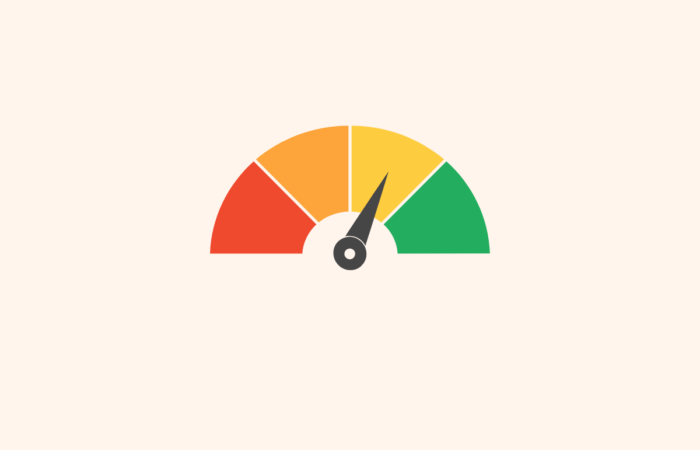Workplace privacy refers to protecting employees’ personal information and activities while they are on the job. It includes everything from email communications and internet usage to personal data stored on company systems. It’s about balancing employee rights with business interests.
Different jurisdictions have different rights and responsibilities for employees and employers.

The Importance of Workplace Privacy
The importance of workplace privacy cannot be overstated. Respecting employees’ privacy rights not only fosters a sense of trust and loyalty, but it also promotes a healthy work environment.
When employees feel that their personal information and activities are protected, they are more likely to be productive and engaged in their work. Furthermore, safeguarding workplace privacy is crucial for maintaining compliance with legal and ethical standards, as well as protecting sensitive company data from unauthorized access or misuse.
Surveillance and monitoring have consequences on employee morale and productivity. 39% of employees under surveillance see their productivity improve as a result of monitoring software implementation. However, 22% believe that being watched hinders their effectiveness, pointing to stress or distraction. In terms of company morale, 43% believe surveillance negatively impacts the overall spirit and culture of the company, while only 29% say it positively affects it.
Workplace Privacy For Remote Workers
According to Forbes research, hybrid workers report higher levels of monitoring, with 48 percent stating that their employer observes their online activities.
Fully remote employees, however, face a similar level of scrutiny in 37% of cases. Based on this data, employers monitor online behavior more closely when employees are working from in the office.
It is concerning that there is no formal communication about surveillance policies. Only 32% of employees report receiving clear guidelines or policies regarding monitoring their online activities at work.
There are questions regarding the awareness and consent of employees regarding these types of practices because of this lack of transparency.
Employee Rights: What You Need to Know
Employee Rights In the EU:
Strict Data Protection: The General Data Protection Regulation (GDPR) sets a high standard for data protection, giving employees significant rights over their personal data. Employers must obtain consent for data processing and provide clear reasons for data collection.
Monitoring: Employee monitoring is highly regulated. Employers must have a legitimate interest for monitoring and must ensure that employees’ privacy rights are protected. Employees must be informed about the monitoring, and explicit consent is often required. Covert monitoring is generally prohibited unless it is a last resort for preventing serious offenses. Monitoring shouldn’t be intrusive, for example by using traffic data (about routing, duration, or timing of messages) rather than accessing email content.
Right to Access and Rectify (Art. 15, GDPR): Employees have the right to access their data and request corrections if it’s inaccurate. They can also request deletion of their data under certain circumstances.
Surveillance Regulations: Monitoring employee activities requires clear justification and transparency. Covert surveillance is generally prohibited unless it’s a last resort to prevent serious offenses.
The Transparent Working Conditions Directive (EU) 2019/1152 requires employers to provide clear and comprehensive information about working conditions. This includes details about pay, work hours, and other key aspects of employment.
EU Employer Responsibilities under GDPR
Employers must have a legal basis to process employee personal data, such as consent or contractual necessity.
Employers must ensure that employees consent freely to specific use, purpose, or processing of data. Silence or inaction by employees, or consent included in standard employment contracts or data protection policies, does not meet the standard.
Employers must record the grounds on which they will be processing each separate category of employee data.
Employees are using their own devices and providing them with digital devices has data protection implications. A comprehensive internet, social media, and communications policy must govern permitted data usage, including email and internet issues.
Employers must be transparent about employee data collection, use, and safeguarding.
Employers must respect employees’ data protection rights, including the right to access, rectify, erase, or transfer their personal data.
Employers must implement appropriate technical and organizational measures to protect employee data.
Employers must demonstrate data protection compliance by training, auditing and documenting processing activities

Employee Rights in the US:
Varied State Laws: Privacy protections vary widely by state. Some states have robust laws, while others have minimal regulations. There is no federal equivalent to the GDPR.
Limited Privacy Expectations: Employees often have limited expectations of privacy, especially regarding communications and activities conducted on company devices. The majority of employee monitoring methods are deemed legal within the United States. Except Connecticut and Delaware which have specific laws requiring employers to notify employees before monitoring their email or internet usage.
Legal Considerations for Workplace Video Surveillance
When implementing video surveillance in the workplace, it is crucial to balance security needs with legal obligations and privacy concerns.
1. Federal Regulations Overview:
Under U.S. Federal law, businesses generally have the right to use video cameras to monitor their premises. This monitoring is primarily intended to ensure the safety and security of employees and to protect business interests. Importantly, surveillance without audio typically falls outside federal wiretap laws, making it less restrictive.
2. Areas of Privacy:
Although video surveillance is permissible, there are areas where employees have a reasonable expectation of privacy. Common areas such as restrooms, locker rooms, and break rooms are typically off-limits for surveillance. Monitoring these spaces could violate privacy laws and employee rights.
3. Consider State Laws:
In addition to federal guidelines, you must also adhere to state-specific regulations regarding video surveillance. Some states may have stricter rules, requiring consent from employees, or mandating clear notification about the surveillance in place. Always review local laws to ensure compliance.
4. Employee Awareness and Consent:
To foster transparency and trust, it’s advisable to inform employees about any surveillance cameras. Providing written notice or including this information in employee handbooks can help clarify the purpose and scope of monitoring efforts.
5. Best Practice Recommendations:
- Clearly define and communicate the surveillance policy.
- Limit camera placement to areas where monitoring is justifiable and non-invasive.
- Regularly review and update your surveillance policies to align with current laws and technologies.
By conscientiously adhering to these legal considerations, businesses can effectively utilize video surveillance while respecting employee privacy rights.
US Employer Privacy Responsibilities
Employers should have clear policies on email monitoring, internet usage, and company devices/property.
Notifying employees of monitoring can reduce their privacy expectations.
Employers should avoid excessive or overly invasive monitoring of personal items like bags or lockers.
Employee Rights in Brazil:
Brazil’s General Data Protection Law (LGPD) plays a critical role in safeguarding employee data. It provides a comprehensive framework that empowers employees with various rights concerning their personal information and mandates responsibilities for employers.
Employees are endowed with a suite of rights that guarantee control over their personal data:
- Right to Confirmation and Access: Employees can verify whether their data is being processed and access it if desired.
- Right to Correction and Anonymization: If any data is inaccurate, employees have the right to correct it and can request anonymization if needed.
- Right to Portability and Deletion: Data can be transferred to other parties, and employees can request its deletion.
- Right to Data Sharing Information: Employees have the right to know with whom their data is shared and under what circumstances.
- Right to Understand Consent-related Consequences: Employees must be informed about the consequences of denying consent.
- Right to Withdraw Consent and Oppose Processing: Consent can be withdrawn at any time, and employees can oppose processing that does not require consent.
- Review of Automated Decisions: Employees can request a manual review of decisions made solely through automated processing.
Employer Obligations Under LGPD
The LGPD also holds employers accountable by mandating rigorous controls and ensuring adherence to key principles during data processing:
Specific Purpose: Data processing must have a clear, legitimate, and lawful purpose.
Harm Prevention: Employers are required to implement safeguards to protect data from unauthorized or harmful processing activities.
Processing Adequacy: The processing methods should align precisely with the intended data usage purpose.
Data Necessity: Employers should collect only the minimum amount of data necessary to achieve the processing goals.
Data Quality: Employers must maintain data accuracy and relevance, ensuring that it remains current.
Accountability Measures: Employers need to demonstrate compliance through effective data protection strategies.
Additionally, employers must establish technical and administrative measures to protect personal data from unauthorized, accidental, or unlawful access, ensuring the overall security of the data environment.
Through these rights and obligations, Brazil’s LGPD strives to create a balanced and secure landscape for handling employee personal data, promoting transparency, and enhancing data protection practices in the workplace.
Key Principles Employers Must Follow Under the LGPD
When dealing with employee personal data under the LGPD, employers need to adhere to several crucial principles to ensure compliance and protect individual privacy rights.
Purpose-Driven Data Use: Employers must ensure that any handling of employee data is driven by legitimate, specific, legal, and clearly defined purposes. This means data should not be collected or processed without a justified reason.
Protection Against Harm: Safeguarding employee data from potential harm is paramount. Employers have a duty to implement strong protective measures to prevent any harm or damage that might arise from the data processing activities.
Data Processing Adequacy: It’s essential that the data processing activities align accurately with the intended objectives. Simply put, the way data is used should fit the purposes declared at the outset.
Necessity Principle: Employers should collect and use only the data that is absolutely necessary to achieve their stated goals. This principle emphasizes minimalism in data handling to prevent unnecessary data exposure.
Demonstrable Accountability: There must be transparency and accountability in how data is managed. Employers need to have systems in place that can demonstrate their compliance with these requirements effectively.
Data Quality Management: Finally, it’s crucial to maintain the integrity of employee data. Employers should regularly update and verify data to keep it accurate, clear, relevant, and current, ensuring it reflects the most up-to-date information.
By following these principles, employers can ensure their data processing activities not only comply with the LGPD but also uphold the highest standards of personal data protection.
Finding the Balance
The key to balancing employee rights and employer responsibilities lies in transparency and communication. When both sides understand each other’s needs and expectations, it’s easier to create a respectful and productive work environment.
In the EU, the balance is more regulated, with stringent laws ensuring employee rights are protected and employers adhering to strict data protection standards.
In the US, the approach is more flexible, with significant variation across states and industries. Employers have more freedom but must navigate a patchwork of laws and regulations

Noa Kahalon
Noa is a certified CIPM, CIPP/E, and a Fellow of Information Privacy (FIP) from the IAPP. Her background consists of marketing, project management, operations, and law. She is the co-founder and COO of hoggo, an AI-driven Digital Governance platform that allows legal and compliance teams connect, monitor, and automate digital governance across all business workflows.




